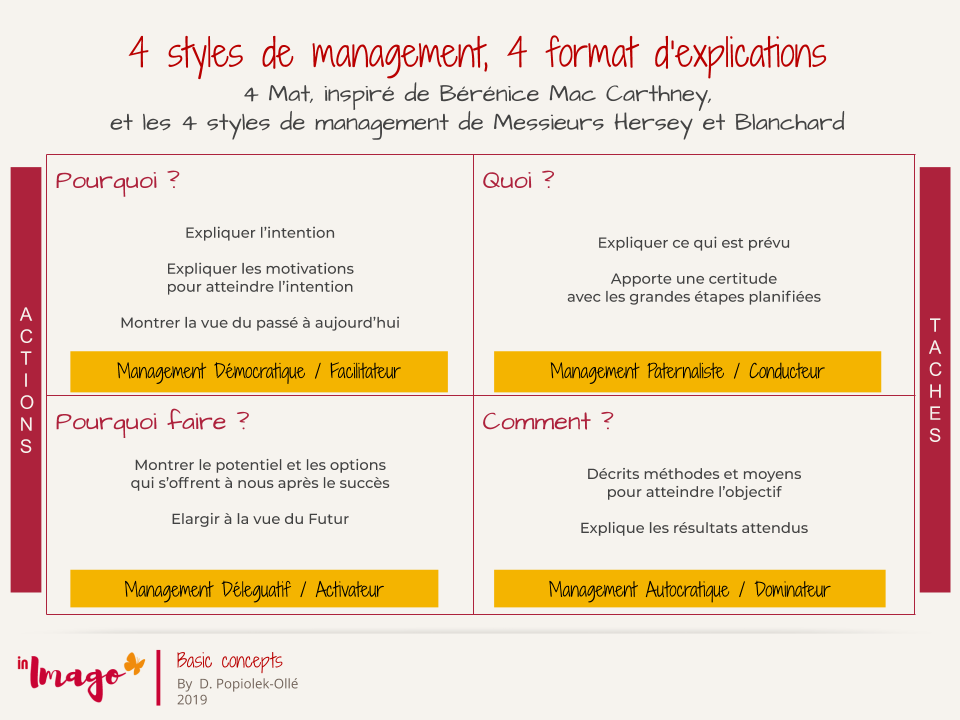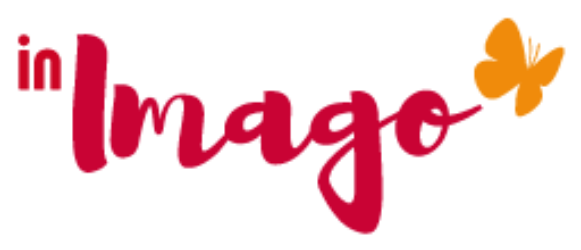The primary objective of Management 3.0 is to generate customer value. It establishes a customer culture at the heart of strategic management. Discover our interpretation of the different objectives according to the management style used.
The 4 styles of management over time

The 20th century, with the development of industrialization, builds an autocratic management, or Management 1.0, with an authoritarian style of leadership. The speech is based on the “how”, the tools and methods are imposed. Employees are “tools”.
The company, in order to grow and develop new products, will turn to the “what”, developing a paternalistic management, stimulating a participatory dynamic and delegating the “how” to its second-level managers. Employees are resources to whom the plan and processes are explained, responsible for them to implement. They become a resource caught between the boss, paternalistic and protective, and the autocratic operational manager.
This 2.0 management model has generated the stress that we are currently experiencing and the disengagement at work. This leaves room for the development of Management 3.0, in which the delegative leadership style will leave more room for dialogue. Now is the “what for” time. The collaborative debate on the “how” leaves more room for employees to develop the added value necessary for customer personalization.
Management 3.0 has to rethink its strategic management. The search for meaning becomes an essential driving force for employee engagement.
Managers alternate between different leadership postures: that of the “boss”, the coach and the leader. The democratic management or the leadership of the facilitator-coach is acclaimed to answer the “why”. Democratic management gives meaning and sets out a vision that everyone can make their own. Everyone can put themselves at the service of the overall added value of the company. Management 3.0 was born at the end of the 20th century and made possible holistic, sociocratic, holacratic and Agile experiments ….
Customer culture at the heart of management 3.0
The primary objective of Management 3.0 is to generate customer value and establish a customer culture at the heart of its strategic management.
By flattening the hierarchical layers, management 3.0 values people for their creativity. The ability to respond in a unique and personal way to each client is made possible by the rehabilitation of creativity, a source of innovation and adaptation. Management 3.0 thus propels the customer culture within the meaning of the company’s strategy.
Everyone, as opposed to paternalistic and autocratic managers, who assign tasks to everyone, has a role to play in making the customer experience pleasant, empathetic and effective.
Customer culture: actions FOR the customer at the heart of production
The whole chain of production, operation and management turns away from the internal to meet customer requirements in their specificity.
I no longer produce sports shoes, but the custom shoe that is designed, revamped so that my client is ready, “Just do it”. The rest the brand takes care of it. The customer’s personal effort is put forward and the customizable shoe becomes his reflection, his shadow. The customer is integrated, taken into account, detected in his slightest desires. The algorithms push him what he needs, by giving rise to improbable partnerships between the producers and the logisticians to whom they have delegated the management of stocks …
The customer at the heart of his production system radically changes his capacity to innovate and his business model. The important thing is to come out with new products and not to produce in series. We are facing a real paradigm shift.
The living, harmocratic, X.0 management is centered on the living creating an open intra-community, intra-client culture.
My word from coach: For me, this management will allow the creation of a harmonic, a partition between the production and their customers, more balanced and harmonious than what is currently called management 3.0, sometimes imposed on our managers without taking into account the context and the meaning to be given to the company of tomorrow.
To discover Strategic Management and its various impacts on the client relationship Strategic Management
Where we discover the different aspects of management Managerial styles, and leadership
Where we discover the challenges of customer culture
Discover our approach to Organic Management or try the Delegation Poker game to identify your style, or use our acronym CIDs
Author: Dominique popiolek-Ollé, Transmutation leader, Agile Executive Coach, Founder of In Imago, management consulting and disruptive transformation.
